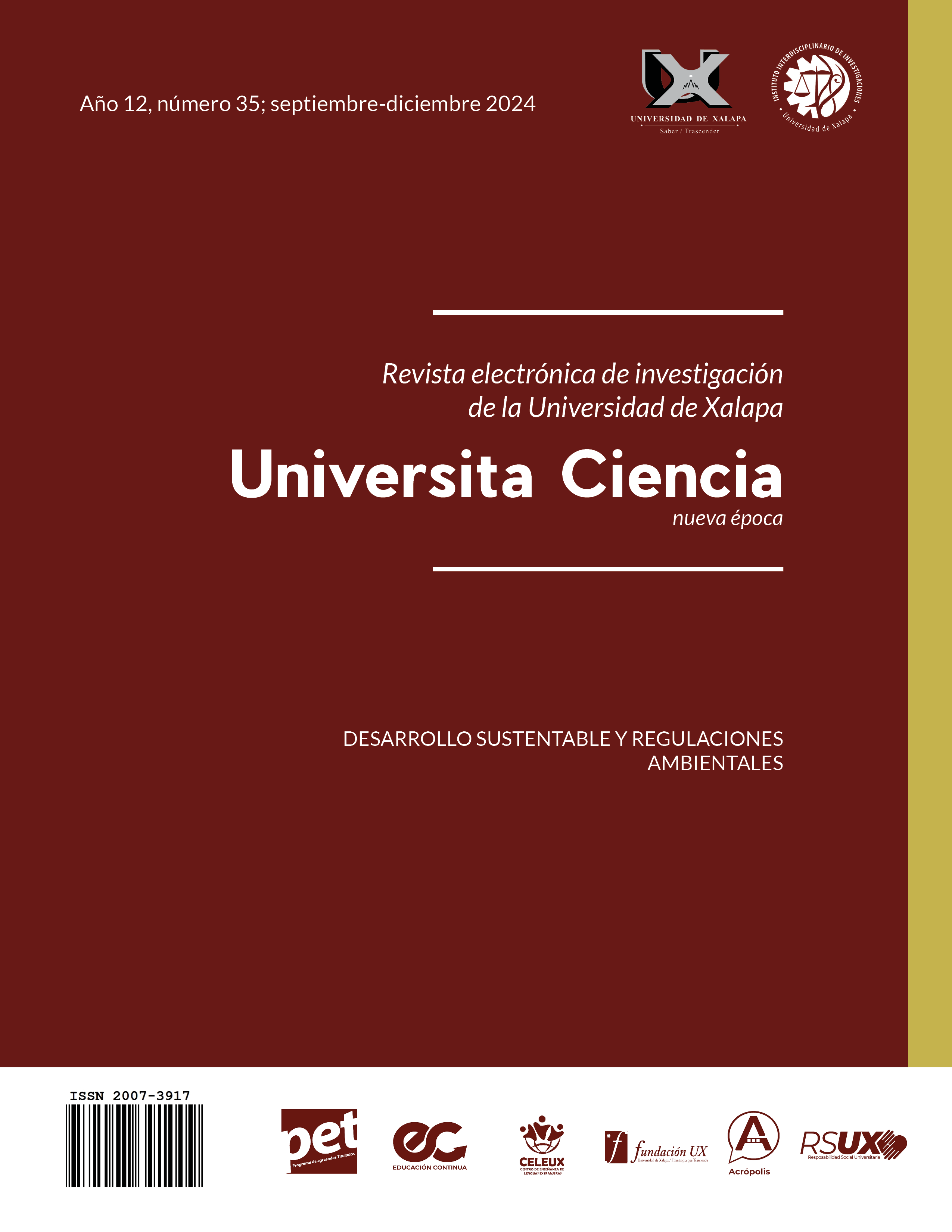Sustainability in the Context of Higher Education: a Curricular Analysis at the Undergraduate Level
DOI:
https://doi.org/10.5281/zenodo.14277710Keywords:
en articuloAbstract
Education makes sense as long as it fosters a relationship between the different fields of knowledge and socio-environmental conditions for the common good. Starting from recognizing the need for comprehensive and transdisciplinary training of professionals from all areas of knowledge, whose analytical-critical skills allow them to generate knowledge, intervene in real spaces of performance and address and solve the various problems of society, it is placed At the center of analysis is the issue of sustainability as a central dimension in the curricular framework. The objective is to identify the dimension of sustainability in undergraduate study plans of six areas of knowledge, at a public university. The study was documentary type and descriptive in scope. The results suggest increasing and strengthening the sustainable axis for comprehensive training in favor of the man-nature relationship from different professions.
Metrics
References
Acosta Haro, E., Aguilar Carvajal, R. D., & Soto Medina, N. (2023). La materia de desarrollo sustentable como factor de concientización ambiental en alumnos de licenciatura de la Unidad Académica de Negocios de la Universidad Autónoma de Sinaloa. Revista científica de sociedad, cultura y desarrollo sostenible, 249-272.
Chávez López, C. (2024). Acciones para la sustentabilidad: Estrategias de colaboración interdisciplinaria y divulgación del conocimiento. Revista de Estudios Interdisciplinarios del Arte, Diseño y la Cultura, 247-266.
Echegarai, M. (2019). Política de sustentabilidad ambiental. Avances en el contexto universitario. Revista Arbitrada Interdisciplinaria Koinonía, 59-87.
Figueroa García, et al. (2023). Modelo de sustentabilidad para instituciones de educación superior: una estrategia de autodiagnóstico para la transición a la sustentabilidad. Estudio de caso. Revista de la educación superior, 87-116.
Galeano, M. (2018). Estrategias de investigación social cualitativa: El giro en la mirada. Universidad de Antioquia.
Haro, A. A., & Taddei, I. C. (2014). Sustentabilidad y economía: la controversia de la valoración ambiental. Economía, sociedad y territorio, 743-767.
Herrera Aguilera, R. (2013). De la crisis a la ambientalización curricular. La trayectoria de la sustentabilidad. Visión Educativa, 47-56.
López Noguero, F. (2019). El análisis de contenido como método de investigación. Revista de Educación, 167-180.
Mihura, E., & Campanella, S. R. (2016). La formación transdisciplinaria en el grado universitario: una experiencia de la asignatura de Análisis de la Sustentabilidad Ambiental de Proyectos. +E: Revista de Extensión Universitaria, 200-207.
Plata R., Á. M. (2020). Compromiso de las universidades colombianas con la sustentabilidad. Educación y Educadores, 158-178.
UV. (2021). Programa de Trabajo 2021-2025. Por una transformación integral. Universidad Veracruzana.
UNESCO (2017). Educación para los ODS: Objetivos de aprendizaje.
Zarta, & Ávila, P. (2018). La sustentabilidad y sostenibilidad: un concepto poderoso para la humanidad. Tabula Rasa, 409-423.
Published
How to Cite
Issue
Section
License

This work is licensed under a Creative Commons Attribution-NonCommercial-ShareAlike 4.0 International License.
This journal adheres to the Creative Commons license in the definition of its policy of open access and reuse of published material, in the following terms:
- Accessibility to articles and other publications in whole or in part under the concept of copying, distribution, public communication , interactive access (through the Internet or other means), explicitly maintaining the recognition of the author or authors and the journal itself (authorship acknowledgment).
- Warning that if the articles are remixed, modified or fragments used in other creations, the modified material cannot be distributed, nor is it allowed to reconstruct versions from the original published articles (derived works).
- The use of the contents of the published articles, in whole or in part, for profit (non-commercial recognition) is prohibited.
The author retains copyright, transfers or grants exclusive commercial rights to the publisher, and a non-commercial license is used.














